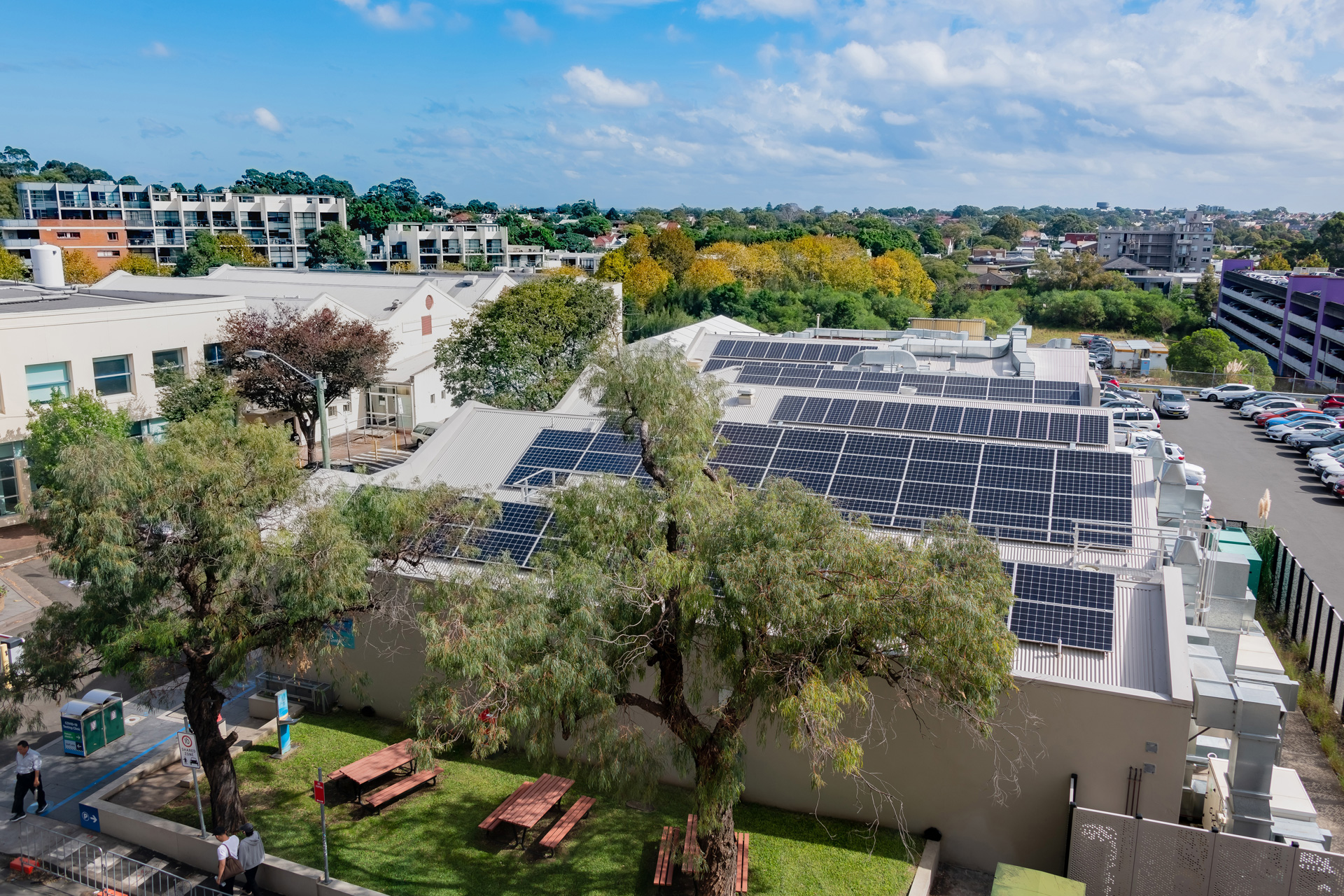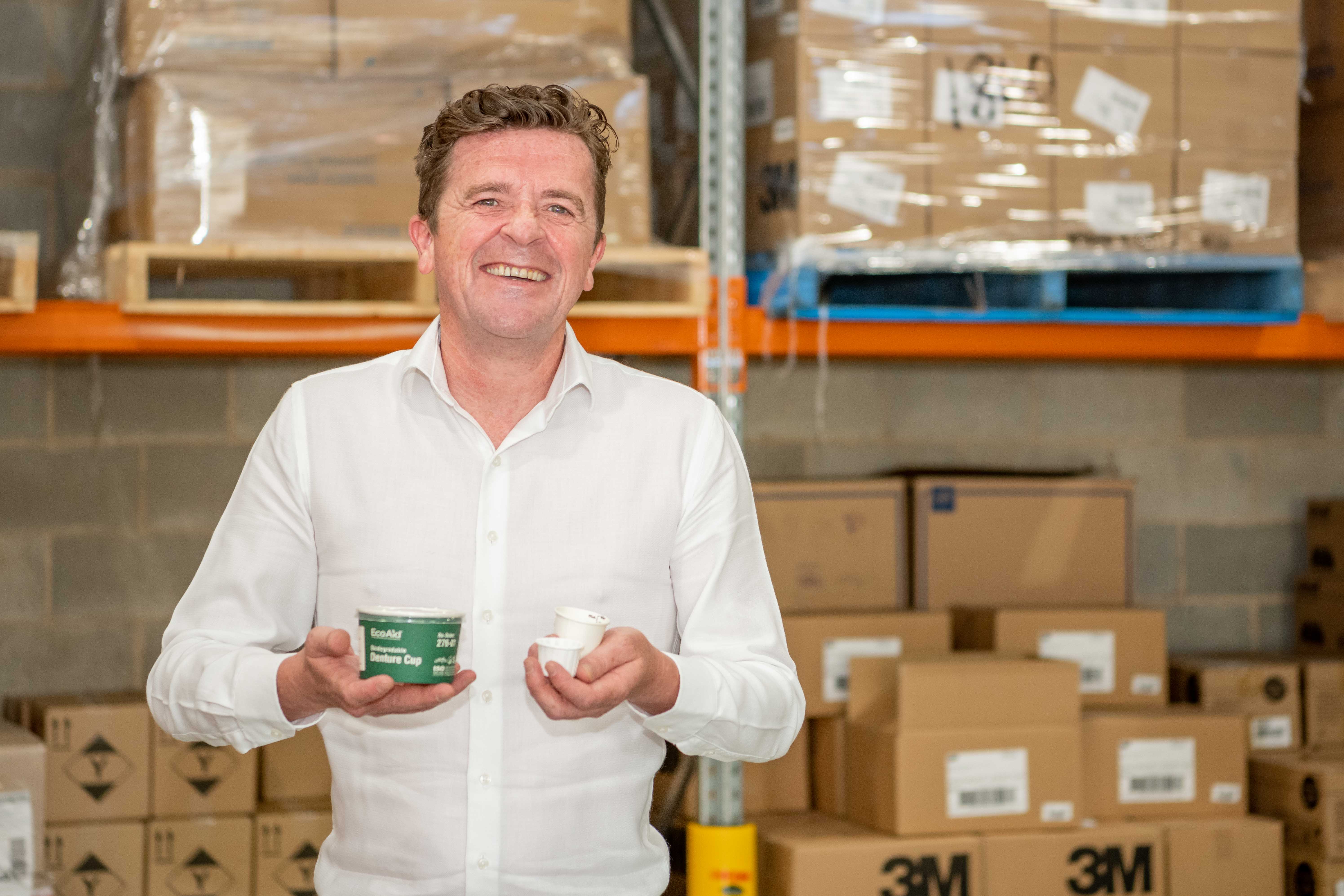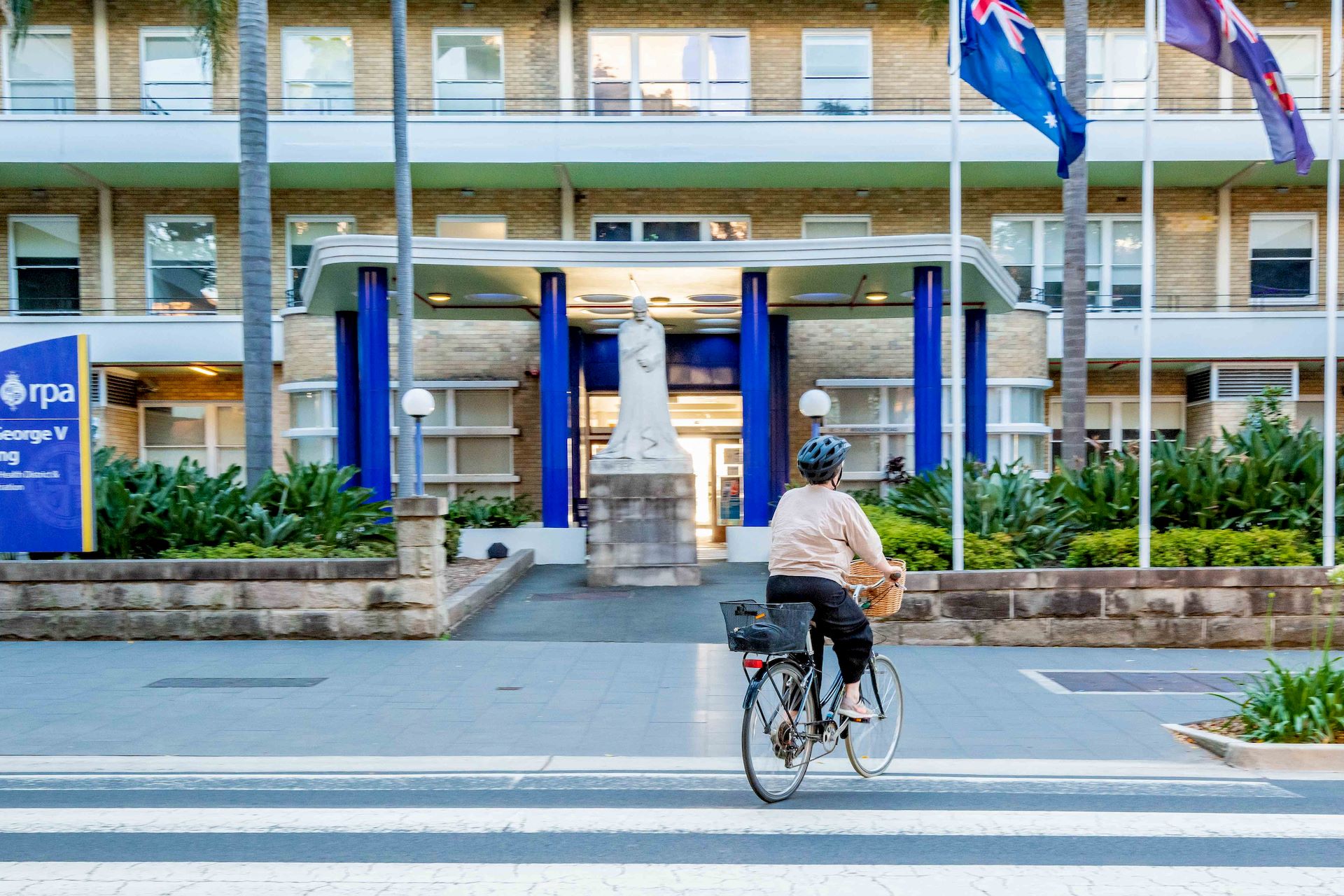Key focus areas
The District’s Environmental Health and Sustainability Committee has identified seven key focus areas. These focus areas guide collaboration with teams across our facilities and services to introduce sustainability initiatives. The shared goals for all initiatives are to reduce our environmental impact and carbon footprint, and further progress our healthcare services toward a circular economy and net zero emissions.
Energy
Healthcare facilities are high energy consumers with many operating 24 hours seven days a week. To mitigate our impact we are transitioning towards renewable energy sources such as solar energy and we are implementing a wide range of energy efficient technologies across our facilities.

Our commitment
- To transition buildings to renewable energy sources to achieve net zero greenhouse emissions.
- To continually seek new ways to reduce energy consumption through technology and facility upgrades.
Targets
- Upgrade heating, ventilation and air-conditioning (HVAC) units to more energy efficient models.
- Install energy efficient LED lighting across the District.
- To phase out gas-fired building services (HVAC, hot water) and replace with 100 per cent electric driven technologies.
Water
Hospital systems and processes such as air-conditioning chillers, dialysis, sterilisation, linen and catering services and hand washing, are all water intensive. We are committed to closely monitoring our water use seeking new water reduction strategies.

Our commitment
- Reduce potable water use, harvest rainwater in all new buildings and return water to the hydrological cycle.
- Ensure all technologies associated with water use are the most efficient models on the market.
Targets
- Report annually on water consumption in an effort to stabilise water use.
- Increase water efficiency by a further 20 per cent by 2025.
- Increase rain water harvesting by 100 per cent by 2025.
Procurement
Our hospitals and services purchase a broad range of goods and services including pharmaceuticals, food, energy, chemicals and electronics. We consider environmental sustainability practices in our decisions when procuring goods and services, including actively looking at environmental impact, social and economic benefits.

Our commitment
- To provide leadership in sustainable procurement practice.
- To integrate sustainability and ‘circular economy’ principles into procurement practices.
Targets
- Increase the use of recycled and sustainably sourced materials, particularly within the clinical environment.
- 50 per cent increase in use of sustainable stationery products.
- Document and measure sustainability information about each vendor within the tender process.
Travel and transport
Travel by patients, staff and visitors to our facilities is a central part of the way we deliver our services. With this in mind we are making significant strategic changes to the way in which we address travel and transport to both mitigate our travel related emissions, and to offer alternative workplace travel plans.

Our commitment
- To ensure our facilities and healthcare services are easily accessible by multiple modes of travel.
- To support an environment that enables active and sustainable transport choices, including by working with NSW Health to further expand electric vehicle charging infrastructure.
- To minimise the impact of travel and transport within our healthcare services.
Targets
- Develop a Workplace Travel Plan which incorporates a baseline audit of staff travel and active transport options.
- Further expand virtual models of health care like telehealth and Sydney Local Health District Virtual Hospital (Sydney Virtual), and promote virtual meetings.
Food and nutrition
The ecological footprint of our food systems represents approximately 30 per cent of our personal ecological footprint. Healthcare organisations are large consumers of food – for patients who stay within hospitals and staff and visitors who attend hospitals. We are committed to driving change within this area improving the health and wellbeing of the community, while reducing carbon emissions.

Our commitment
- Optimise education opportunities for our community on sustainable food options.
- Partner with retail outlets to prioritise sustainable food options.
Targets
- Provide educational opportunities for our community on healthy and sustainable food.
- Provide safe, nutritious and healthy food and drink options to retail outlets in our hospitals.
- Utilise the food waste compost program and integrate into garden management.
- Work in partnership with HealthShare to increase local sourcing of produce.
Waste and recycling
The carbon emissions associated with the manufacture of medical supplies and equipment in the healthcare supply chain enormously contributes to the healthcare sectors carbon footprint. There are large financial and environmental benefits to be gained from the thorough separation of hospital infectious and general waste management.

Our commitment
- Seek to minimise waste by improving resource efficiency.
- Increase recycling streams and expand on current streams.
- Seek out new opportunities that engage with circular economies.
Targets
- Reduce general waste by 10 per cent per year towards 2027.
- Increase recycling by 10 per cent per year towards 2027.
- Reduce food waste entering landfill by 50 per cent by 2027.
Built environment
We are incorporating sustainability principles into the design and construction of District healthcare facilities to minimise carbon emissions, reduce energy consumption and streamline waste management systems and processes. Not only are there environmental and economic advantages associated with green building principles, sustainable hospitals also provide healing environments that offer numerous other benefits including metal health and wellbeing.

Our commitment
- Ensure all new District construction adheres to leading environmental sustainability systems and practices from conception to operation.
Targets
- Design and construct healthcare facilities that exceed the four star Green Star Design and Construction standard and four star NABERS Energy rating.
- Design and construct green infrastructure that supports the integration of infrastructure, landscape and biodiversity to deliver improved amenity and biophilic outcomes for patients, staff and visitors.

